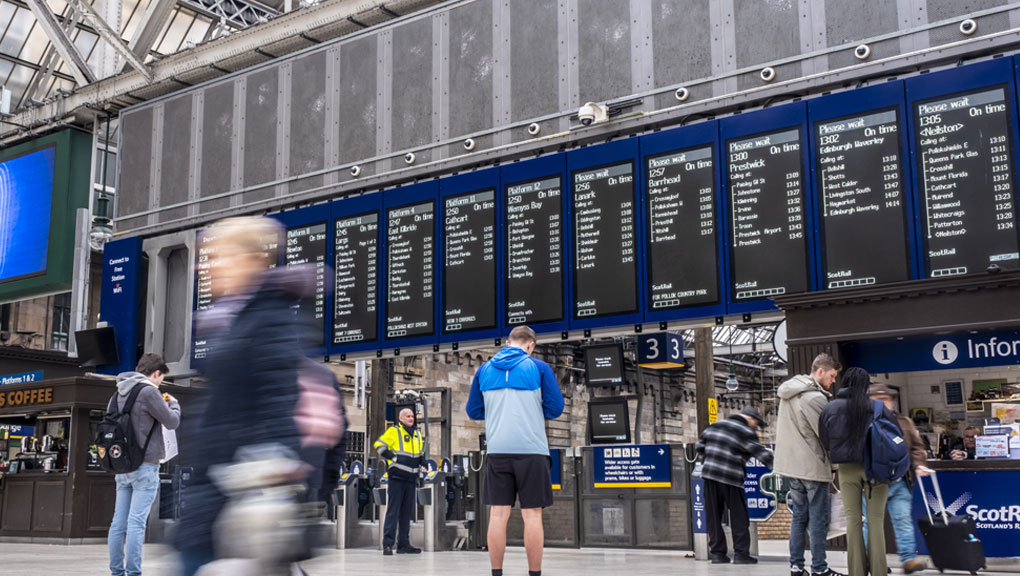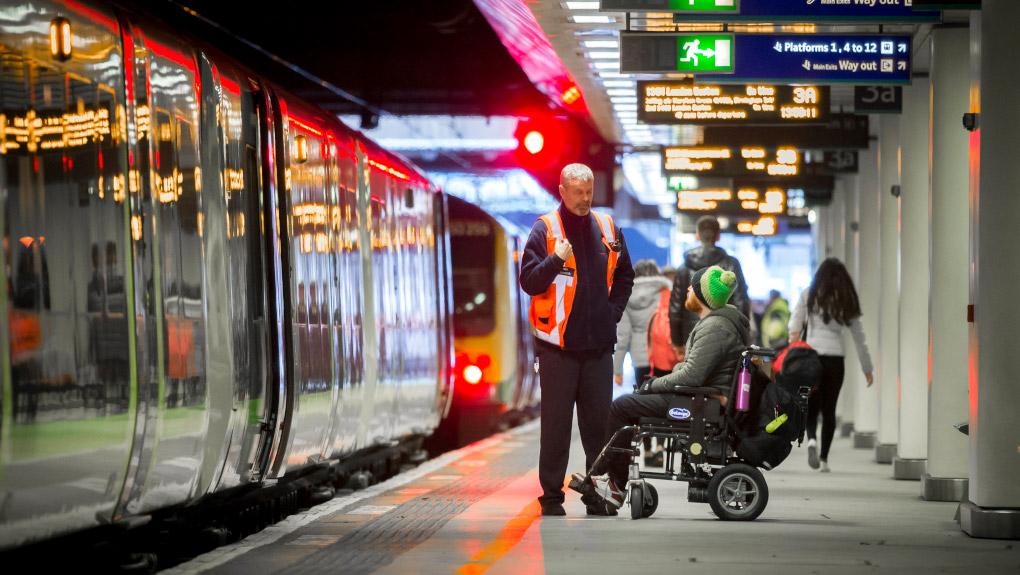ORR protects the interests of rail and road users, improving the safety, value and performance of railways and roads, today and in the future.
Our regulation of the rail sector makes a difference for passengers at every stage of their journey from planning a journey and booking a ticket, through to travelling and redress where things go wrong.
We want passengers to feel confident about the experience they can expect when travelling by rail. Our passenger-facing work focuses on five key areas:
- ticket retailing and passenger rights
- passenger information
- accessible travel
- complaints and compensation
- sponsorship of the Rail Ombudsman, a new role this year
We define the minimum acceptable standards for the passenger experience, hold operators and retailers to account against those standards, and drive continuous improvement across the industry. Our work is underpinned by requirements set out in consumer law, conditions in the licences that we issue to passenger train and station operators, and health and safety legislation.

We oversee all mainline train and station operators and retailers against common standards, including:
- those operated by and for the Department for Transport, the Scottish and Welsh Governments, and Transport for London
- open access and heritage operators
- third-party rail ticket retailers
We use a range of information sources to help us prioritise our work and identify where there is an opportunity to drive improvements or where we need to intervene to protect passengers from harm. This includes commissioning ongoing and ad-hoc passenger research, and collecting information from industry.
Our core expectation is that if something has gone wrong, it is fixed quickly by the operator or retailer. To help secure this outcome, we may:
- monitor activity more closely and require more frequent reporting
- request improvement plans
- escalate issues in line with our economic enforcement policy

Our Consumer Expert Panel provides independent advice and challenge, and plays a key role in bringing a consumer perspective to our decisions.
We are not responsible for setting fares, awarding or monitoring management agreements with operators, or for setting the level of public subsidy in the railways – these sit with Department for Transport and Transport Scotland. We are also not responsible for enforcement of the Equality Act 2010, which sits with the Equality and Human Rights Commission (EHRC).

